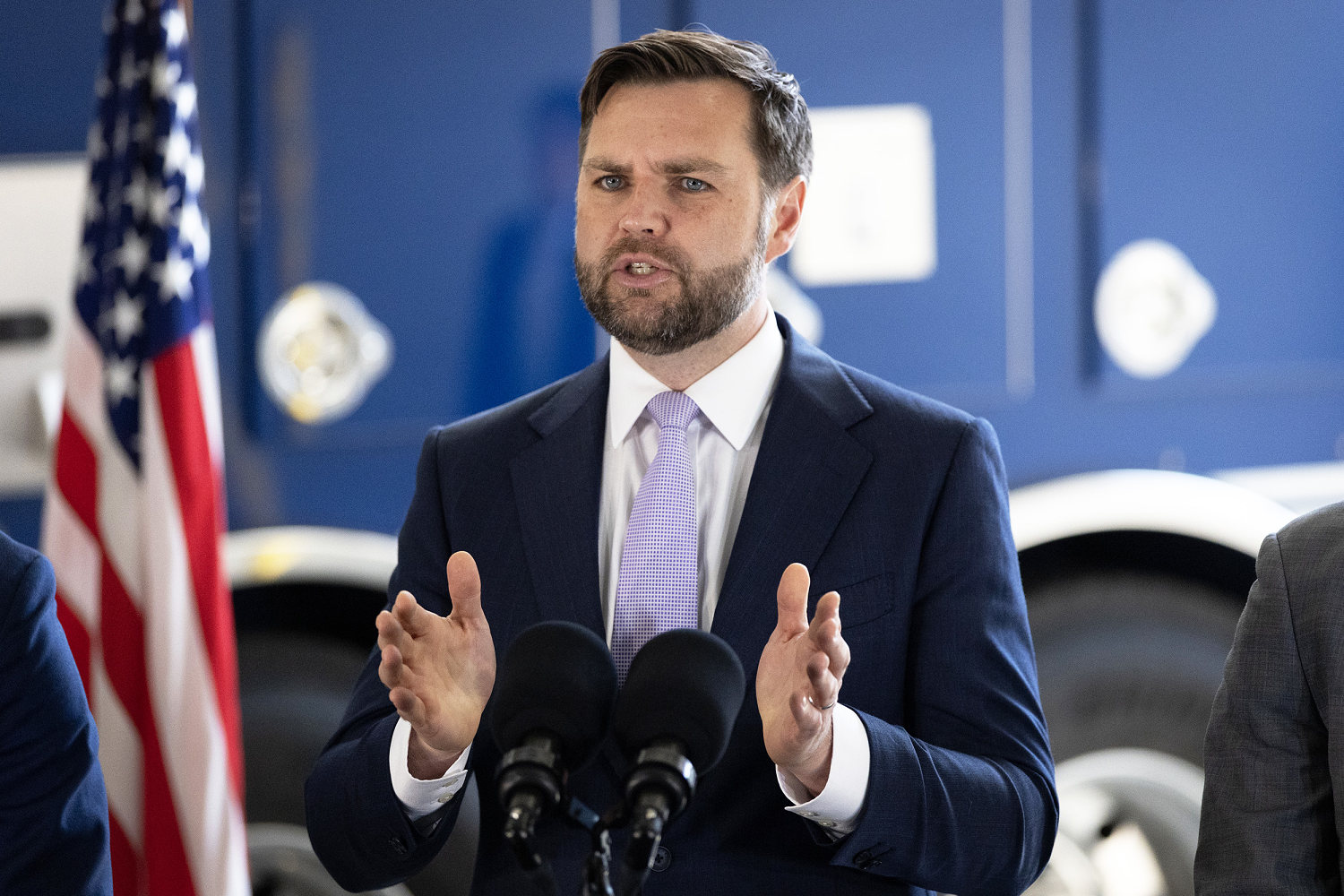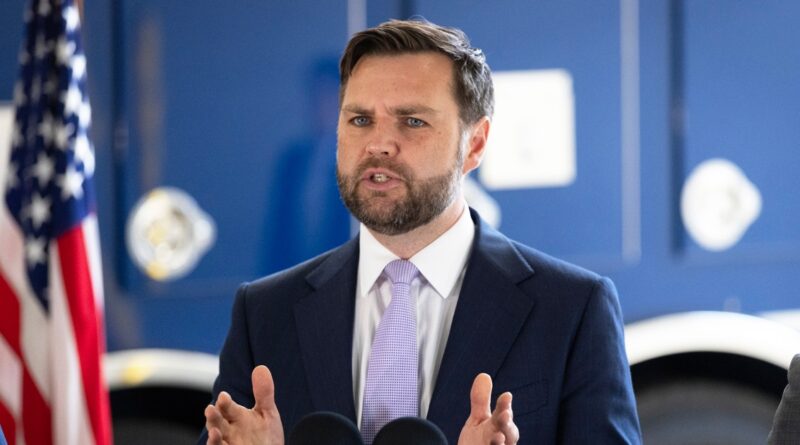Iran pushes Vance, an intervention skeptic, into role of salesman

When he endorsed Donald Trump’s 2024 presidential bid, then-Sen. JD Vance framed his support around a simple idea: Trump had started no wars in his first term.
Now serving as his vice president, Vance is being called on to make a more complicated case in defense of Trump’s decision Saturday to drop bombs on nuclear enrichment sites in Iran.
Vance was by Trump’s side in the White House Situation Room during the strikes, and at the televised address to announce them. And the next morning, he appeared on two Sunday news shows to answer for the United States’ direct plunge into a conflict between Israel and Iran.
The U.S., Vance asserted on NBC News’ “Meet the Press,” was not at war with Iran but, rather, with Iran’s nuclear weapons program. Diplomacy, Vance added, “was never given a real chance by the Iranians.” And on ABC’s “This Week,” Vance argued that Trump’s contention that Iran’s nuclear capabilities had been “completely and totally obliterated” was not meaningfully different from a tamer characterization in The New York Times that the program had been “severely damaged.”
Vance’s salesmanship Sunday — amplified along with Secretary of State Marco Rubio’s by the White House’s rapid response team in a stream of clips posted on social media — was not out of line with some of his more hawkish statements on Iran. But his TV appearances were also meant to reassure others who, like Vance, have been broadly skeptical of or opposed to foreign intervention.
“I certainly empathize with Americans who are exhausted after 25 years of foreign entanglements in the Middle East,” Vance said on “Meet the Press.” “I understand the concern, but the difference is that back then, we had dumb presidents, and now we have a president who actually knows how to accomplish America’s national security objectives.”
A clash with Iran, Vance added, “is not going to be some long, drawn out thing. We’ve got in, we’ve done the job of setting their nuclear program back. We’re going to now work to permanently dismantle that nuclear program over the coming years, and that is what the president has set out to do. Simple principle: Iran can’t have a nuclear weapon.”
Vance “was selected to be VP in part for situations exactly like this,” said a person close to Trump’s team who was granted anonymity to share internal thinking.
“The president has total trust in his ability to effectively communicate the administration’s message, especially in hostile territory, in a manner that can bring his coalition together, instead of dividing it,” this person added.
A divided coalition has been a concern inside Trump world since Israel launched air strikes against Iran last week, prompting retaliation from Iran — and fears that the U.S. would soon become more directly involved in the conflict.
Many influential figures in Trump’s MAGA movement, from former Trump adviser Steve Bannon to young right-wing activist Charlie Kirk, have strong isolationist or anti-intervention views and popular platforms from which to share them.
Vance himself has been a tip of the spear for such positions, which he articulated in the January 2023 guest column he wrote to endorse Trump in the Wall Street Journal. Several people in Trump’s orbit have cited that endorsement, which came at a low moment in Trump’s 2024 campaign, as a key building block in a relationship that blossomed into the vice presidency.
“In Mr. Trump’s four years in office, he started no wars despite enormous pressure from his own party and even members of his own administration,” Vance wrote in the column, which appeared online under the headline “Trump’s Best Foreign Policy? Not Starting Any Wars.”
“Not starting wars is perhaps a low bar, but that’s a reflection of the hawkishness of Mr. Trump’s predecessors and the foreign-policy establishment they slavishly followed,” Vance added.
That worldview, held by Vance and others, was at the time particularly potent given far-right opposition to U.S. intervention in Russia’s war against Ukraine. But those close to Vance note that he has over time applied a more nuanced thinking toward Iran.
Speaking last year on a show hosted by Morgan Ortagus, a foreign policy operative who has served Trump as a deputy special presidential envoy to the Middle East, Vance called for an “aggressive” approach to ensure that Iran does not develop or deploy a nuclear weapon.
“And if, God forbid, they get there, then I think you have to be willing to take some extreme steps — if they’re going to be effective — to ensure that they don’t have a broader nuclear capability, that they can’t launch nuclear missiles all over the Middle East or even all over the world,” Vance said in the interview. “I think we have to be aggressive with this, and I come at this from a position of some restraint in foreign policy. I think war often leads to unintended consequences but preventing Iran from getting a bomb — really, really important.”
In a Fox News interview during last year’s Republican National Convention, Vance held up Trump’s first term drone attack that killed Iranian military leader Qassem Soleimani as an example of smart leadership.
“A lot of people recognize that we need to do something with Iran, but not these weak little bombing runs,” Vance told host Sean Hannity. “If you’re going to punch the Iranians, you punch them hard. And that’s what he did when he took out Soleimani.”
More recently, at last month’s Munich Leaders Conference in Washington, Vance described Iran’s nuclear program as a tipping point.
“We really think that if the Iran domino falls, you’re going to see nuclear proliferation all over the Middle East,” Vance said. “That’s very bad for us. It’s very bad for our friends. And it’s something that we don’t think can happen.”
Last week, as anticipation of U.S. intervention grew, Vance used his personal X account to issue a 374-word preemptive defense of whatever Trump might decide to do with Iran.
The president, Vance wrote, “has earned some trust on this issue. And having seen this up close and personal, I can assure you that he is only interested in using the American military to accomplish the American people’s goals. Whatever he does, that is his focus.”





